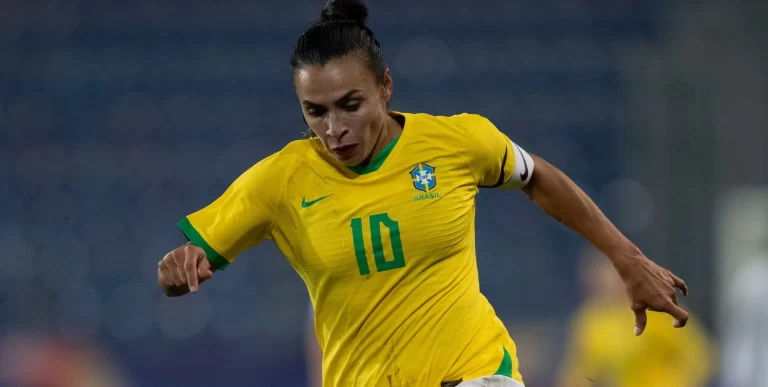Marta’s life story summarizes the struggle of many women who commemorate International Women’s Day today. She went from fighting as a girl against marginalization because it was considered that soccer was exclusively for men to becoming one of the most awarded athletes, in a consecration also as an activist for gender equality in sports.
Marta Vieira da Silva was born on February 19, 1986 in Dois Riachos, in the state of Alagoas, in northeastern Brazil, the historically poorest and most neglected region of the country. At an early age she showed her quality and her passion for soccer, without giving importance to the reluctance of many neighbors due to the presence of a girl in the games that were improvised in the street.
READ MORE
+ + Marta reveals that she wants to play in another Olympics and says when she intends to retire
+ + Thiago Silva reflects on mentorship from Maldini and Nesta
+ + How will Spain’s recent visit to Brazil benefit Brazilians? Four key insights
“I was the only girl among a lot of boys and I wasn’t always well accepted. But I never gave up because I realized that it was a way to progress in life and help my family financially and in a certain way reverse that role of women,” she said in an interview with CNN.
While her mother, Tereza Vieira, faced multiple jobs to support her four children alone, Marta continued with her personal fight to make a place for herself in soccer by playing in the youth team at the Centro Sportivo Alagoano, and at the age of 14 the big leap came. After a long trip of 1,300 kilometers she arrived in Rio de Janeiro and tried out for Vasco da Gama, one of the few clubs that had women’s soccer after it was banned in the country by decree between 1941 and 1983.
It was the beginning of a great career that led her to migrate to countries with a greater development of women’s soccer such as Sweden and the United States, with two periods in which she returned to her homeland to wear the uniform of Santos, Pelé’s historic team. Currently, in the Orlando Pride of the American top division, at the club level she has won everything, including the Copa Libertadores, the Champions League, the Copa do Brasil and the league titles in the tournaments she played.
A #FIFAWWC icon like no other. 🇧🇷💫@martavieiras10 | @SelecaoFeminina
— FIFA Women's World Cup (@FIFAWWC) April 13, 2023
With the national team he has Copa América titles and medals from the Olympic and Pan American Games. She is the Seleção’s all-time top scorer (counting the men’s and women’s teams) with 116 goals and the player with the most victories in the World Cups (also including women’s and men’s) with 17, surpassing the 16 of the German Miroslav Klose.
Chosen six times as the winner of the Ballon d’Or for best player and the first woman to leave her footprints on the Maracanã “Walk of Fame”, her great unfinished business was winning a World Cup: she was runner-up in China 2007, while in the disputed Last year in Australia and New Zealand, Brazil was eliminated early in the group stage.
She also established herself as an activist for gender equality, with campaigns with different organizations and as a Goodwill Ambassador for UN Women. In this context, she left a memorable gesture at the 2019 World Cup: after kicking a penalty against Australia, Marta pointed out her cleats that were not sponsored by sports brands to raise awareness about the gap in what these brands offer to men and women.



